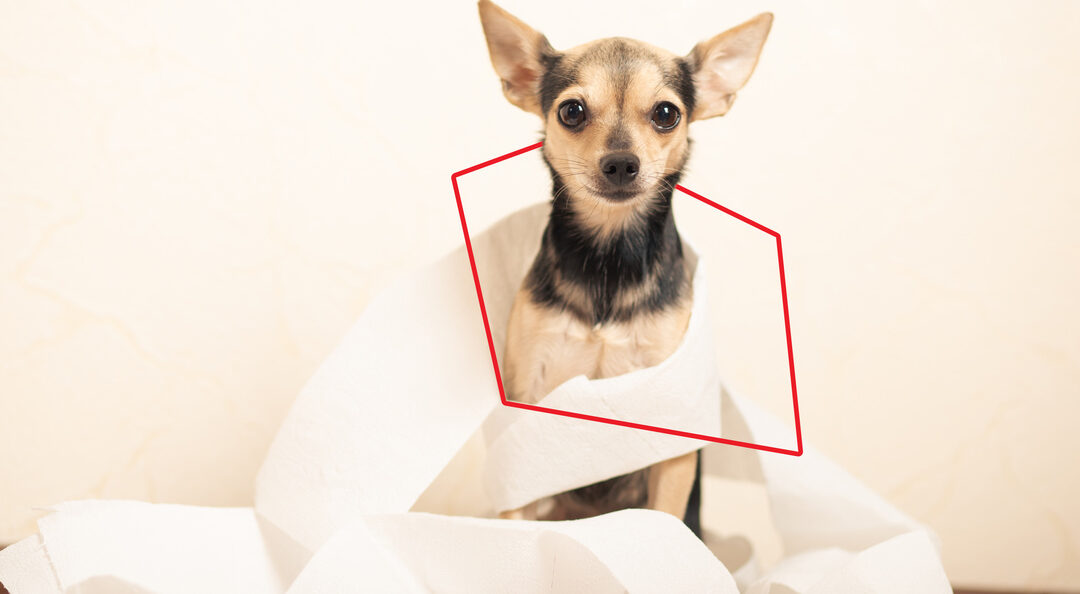If you are a dog owner, probably, your pet will have experienced throughout his life the discomfort of suffering from diarrhea, a frequent problem in dogs and that can be caused by various factors, such as changes in diet, infections or even stress, as happens to people.
In this post we will explore the usual causes of diarrhea, how you can diagnose this problem, the types of treatment and how to prevent future episodes.
Common causes
Dietary errors are a frequent source of canine diarrhea. This happens when a dog eats something inappropriate altering his digestive system, such as spoiled food, garbage or even an inedible object, such as a toy.
Another common cause of intestinal looseness can be an abrupt change of diet or overfeeding. Take care of your dog’s diet and make sure it is digestible. It is essential that your menu consists of foods of high nutritional value to avoid digestive problems such as those related to the small intestine.
Infections, such as viral or bacterial infections, can also cause diarrhea in dogs. Contamination of food or water, or even contact with other infected animals, can be the origin of the infection, but also some parasites, such as worms.
In addition, the intake of some medications, anxiety and other more serious underlying diseases, such as pancreatitis or inflammatory bowel disease, can also cause diarrhea in dogs. Keeping your pet’s environment clean and practicing good hygiene is essential to prevent the spread of infections.
Diagnosis
Determining the exact origin of canine diarrhea can be complicated. If it is a persistent problem, a thorough physical examination, a fecal analysis and blood tests are usually necessary to locate the problem. Sometimes other diagnostic procedures, such as X-rays or ultrasounds, may be required to exclude more serious conditions. In addition, it is important to observe any accompanying symptoms, such as vomiting and even other different behaviors, such as apathy.

Treatment options
To treat your dog’s intestinal looseness, there are several treatment options. In addition to providing him with a special diet to relieve his stomach and provide him with the nutrients he needs, if the problem is caused by a bacterial infection, the veterinarian may prescribe antibiotics to eliminate the infection.
It is also highly recommended to include prebiotics with fos and mos in the diet to restore the balance of bacteria naturally in the intestine, strengthening the defenses and taking care of the dog’s intestinal flora.
If the diarrhea is very severe or long-lasting, the veterinarian may suggest hospitalization and intravenous fluid therapy to protect against dehydration. This is especially important if your pet has other symptoms, such as vomiting.
Preventing diarrhea
To prevent these problems, taking care of your furry friend’s food and health is essential. To guarantee his well-being, it is essential to feed him with a high-quality feed suitable for his breed, age and activity level, composed of natural ingredients.
In addition, keeping your canine companion hydrated is very important because dehydration can be a frequent cause of diarrhea, especially when it’s hot or at times when the pet has performed strenuous physical activity. Therefore, make sure that he always has access to clean and fresh water at all times.
Exercise is also essential to prevent diarrhea. It helps to keep their immune system in good shape, and it can also reduce stress and anxiety, factors that contribute to diarrhea in some dogs.
It is important to make sure that your puppy’s environment is kept clean and free of parasites or bacteria that can cause diarrhea. Regularly cleans their living space, including bedding, toys, and food and water bowls.
And, finally, make sure that your pet has all the vaccinations and antiparasitics up to date, and take him for regular check-ups with the veterinarian to ensure his general well-being.

